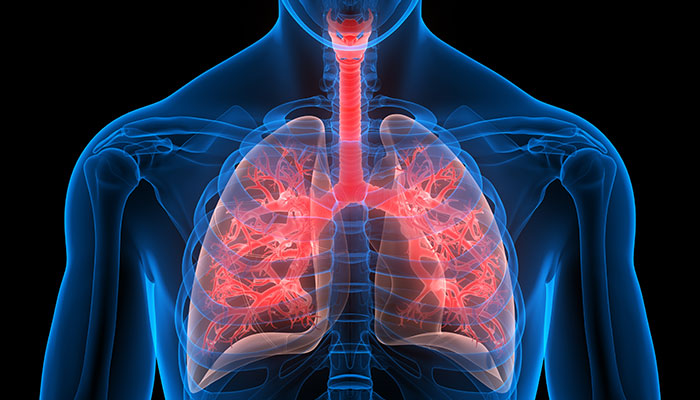HOW CAN WE HELP YOU? Call 1-800-TRY-CHOP
In This Section
Do Circadian Rhythms Affect Lung Repair and Regeneration After Injury?

The state of an individual's circadian health may be an important predictor of how one recovers from a lung injury.
The findings:
Researchers at Children's Hospital of Philadelphia and the University of Pennsylvania showed for the first time that circadian rhythms contribute to lung regeneration independent of the clock's effect on inflammation. They showed — also for the first time — that lung organoids have a functional circadian clock, and the disruption of this clock impairs regenerative capacity. They found that the circadian clock acts through distinct pathways in mediating lung regeneration in tracheal cells via the Wnt/β-catenin pathway and through IL1β in alveolar epithelial cells. And, they discovered that poor circadian rhythms were associated with significantly higher risk of hospital admission, length of stay, and higher 30-day mortality following discharge.
Why it matters?
As the site of gas exchange, our lungs are vital to our physiology and therefore their vulnerability to infections poses a serious threat to overall well-being. Optimal lung repair and regeneration is essential for recovery from viral infections including influenza A virus (IAV). The state of circadian health of an individual can be an important predictor of how one recovers following lung injury. This could have several implications for patients suffering from lung injury of various etiologies, well beyond IAV. Consideration of circadian context of lung injury and repair may not only provide novel therapeutic strategies but also allow for improved efficacy of many existing therapies towards enhancing lung recovery.
Who conducted the study:
The research team was led by senior author Shaon Sengupta, MBBS, MPH, an attending neonatologist at CHOP and assistant professor of Pediatrics at the Perelman School of Medicine of the University of Penn.
How they did it:
By analyzing actigraphy data — a method of objectively measuring sleep parameters and average motor activity using a noninvasive accelerometer for one week recordings — collected from for 84,823 patients in the UK Biobank, the researchers found that individuals with poor circadian rhythms are more likely to have worse outcomes from pneumonia, including the need for hospitalization and post-discharge mortality. The researchers also used a combination of lung organoid assays, single cell RNA sequencing, and IAV infection in different murine models of clock disruption to investigate the role of the circadian clock in lung repair and regeneration.
Quick thoughts:
"Circadian disruption is ubiquitous in modern life and medical care in hospitals and ICUs," Dr. Sengupta said. "Our study sheds light on the importance of circadian health as a significant determinant of our overall health — including the ability to fight infections, and recover from the same. We speculate, that adding a circadian dimension to the critical process of lung repair and regeneration will lead to novel therapeutic targets."
Where is the study published?
The study appeared in JCI Insight.
What's next?
Dr. Sengupta will be participating — as a speaker and moderator — in a three-day virtual workshop titled “Circadian Clock at the Interface of Lung Health and Disease.” The workshop, hosted by the National Heart, Lung, and Blood Institute, takes place Sept. 14, 15, and 18. In the meantime, Dr. Sengupta's research team will be diving deeper into the role of the cell autonomous clock resident in the Alveolar Type 2 cells.



